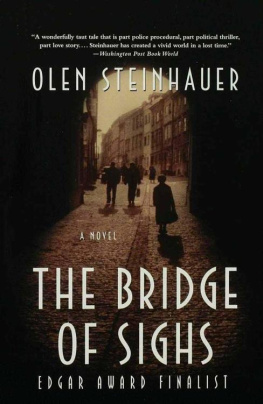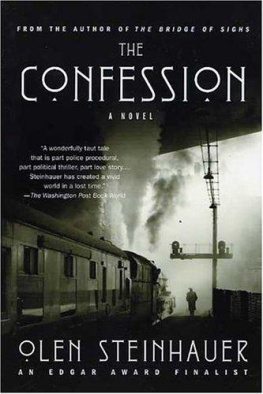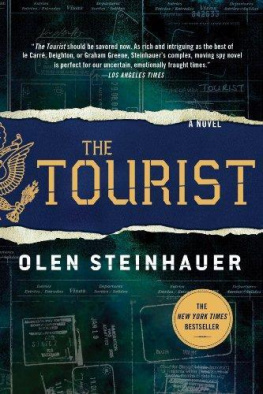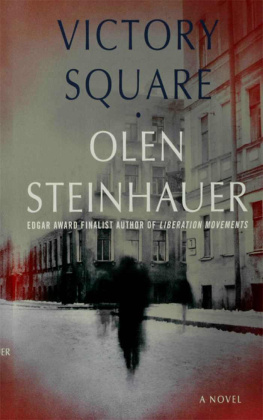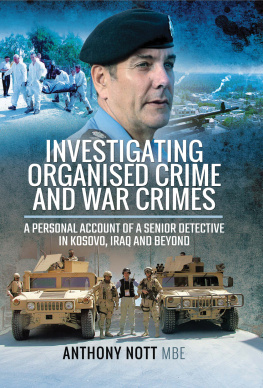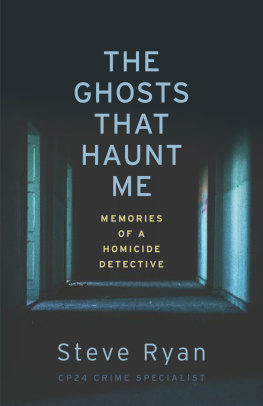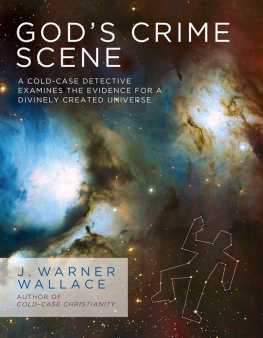A novels author is inevitably indebted to others for their assistance. This one is no exception.
Much of what I understand of this region of the world was learned during a research trip to Romania, very appreciatively funded by the Fulbright Commission and tirelessly assisted by the fine poet Ioana Ieronim.
For its timely and detailed answers to my questions, I thank the Berlin chapter of the Berlin Airlift Historical Foundation.
Any mistakes, of course, are my own.
For her generosity and encouragement, I warmly thank another poet, the great Gail Mazur.
And for his enthusiasm, good humor and faith, I salute my agent, Matt Williams.
For everything, Krista.
CHAPTER ONE
*******************
T he greeting was in his desk, the center drawer: a piece of fish- stained cardboard with a clumsily drawn stick figure. It had a circular head and an X for each eye. A fat knife separated the head from its stick body. The speech balloon said, Were on to you.
His chair wobbled insecurely beneath him.
Emil inhaled slowly, evenly. He sat in the center of the large, stale-smelling office, between two columns, and on the far wall two high, open windows did nothing to freshen the air. His tight suit constricted him as he stared above the others heads at the clock on the yellow wall. It was the dirty, pale yellow of Austro-Hungarian demise. He had been here only forty-five minutes.
It was Monday, the twenty-third of August, 1948, 9:17 a.m . He still had a whole day to go.
He couldnt match names to their faces yet, but why should that matter? Along the walls, three of the four homicide inspectors grinned at their wide, steel desks, suppressing laughter. They were all to blame. Through the windows, street noises spilled into the hot room: clopping hooves, shouts, the occasional motor car.
His grandmother had starched his suit into a hard crust to celebrate his first day in the People s Militia. He wanted to run his finger between his collar and neck, but knew how it would look.
His exhale finally came.
The fourth inspector wasnt grinning: the stout one at the corner desk with the wide, flat, familiar-looking peasants face.Despite the heat wave, he lounged in the leather overcoat of state security. By law, one security inspector was assigned to each Militia department, but no law ordered them to dress like that, like the Russian secret police. Yet they all did. And like their MVD counterparts, they never laughed. This one stared at Emil with the intensity of a scientist waiting for a nerve-provoked response.
In the opposite corner, beside the windows, the largest of them banged slowly at a typewriter. He was a neckless lump of clay with tin rings constricting his thick fingers. The sound of striking keys filled the room.
Emil had spoken to them once when he arrived. A twenty-two- year-old in a stiff suit with a stupid, bashful grin marking his pale features, a blond schoolboy among these dark veterans. My name is Emil Brod, and this is my first day with Homicide.
A voice he could not put to a face had answered: Desks in the center.
Even then, they did not show him their eyes. But he was the only thing they were watching.
Emil settled his small hands on the desk.
At another time and place the sketched decapitation would have provoked violence. But now, here, he separated himself from the anger. He let the cardboard drop into his wastebasket, gingerly shifted the chair beneath himself, and opened the mornings Sparky which he had picked up on his way to work. There were grainy images of airplanes in the west, heavy American and British planes over Berlin. Words about remilitarization and effrontery spotted the pages, but he couldnt focus enough to read whole sentences. The typewriter continued snapping. The stuffy room grew hotter.
He had gone dutifully to the desk in the center of the room, just as the voice had commanded, and put down his hat and satchel. Then he rapped timidly on the door with chief painted on the wood. A light curtain covered the dark window beside it. When does Chief Moska arrive?
It was an insignificant question, something he almost felt foolish asking, and their agreement was apparent by their silence. He returned to his desk. When he sat down his chair collapsed beneath him.
They had all laughed then, even the security inspector.
He sprang up. The chair was in pieces. The rope that bound its legs together had snapped, or been cut. Their amused faces turned back to their desks as he tied the chair together again with a fishing knot. It wobbled, but held. By the time he was finished, the laughter had been over a long time.
It was then that he had reached for the center drawer, if for no other reason than to look busy.
Maybe it was a joke. He didnt know. They had laughed, so perhaps there was nothing more to this than some gentle hazing. Like in the Academy, when they buried his papers in the middle of the firing range, or when he lay in the mud and they gave him one kick apiece. Certainly this was easier than that.
He set the newspaper aside. In one dusty corner was a brown porcelain heater for wintertime, as tall as a man, and along the walls three desks faced the centerfaced him. The fourth desk, the state security inspectors, faced the wall.
He settled back into his creaking chair and affected a calm he didnt feel. He arranged the ink bottle on his desk and straightened the blotter, then placed his transfer papersin triplicate, as requiredalong the edge. From his burlap satchel he brought out the cigars and the leather-bound notepad his grandfather had been able to unearth in the black market off Heroes Square. If he focused on these little things he could make it.
The inspectors lounged at their desks, sweating, chewing dried pumpkin seeds, sometimes muttering into telephones, other times writing or smoking. The big one continued typing. Two of them-one scrawny and very dark, the other heavy and limping, spitting out flakes of pumpkin seedmet beside yellowed wanted notices and joked quietly with one another. The sound of their laughter left small, cold spots in Emils guts. They left the office together and returned smelling of clear alcohols. The fat one carried a fresh bag of tobacco with nicotine-yellowed fingers.
A man outside was shouting in Russian. Although the rowdy Russian soldiers that still occupied their small capital disturbed him as much as the next person, at that moment he wanted to be with them, under the sun, rather than in this dim, humid room with his own kind.

